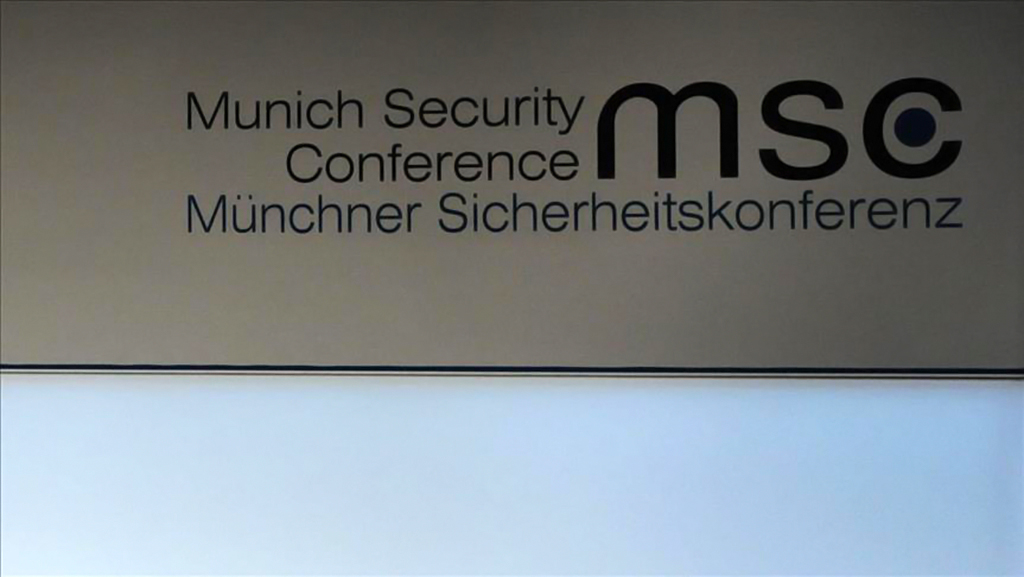DHKP-C facing extinction in Turkey
Operation leads to arrest of senior members of terror group, which is trying to become active in Europe with help of PKK
More


The ugly face of power
The Europeans are following in America's footsteps, revealing that they only care about their own interests. Their support for Egypt proves that
More
In recent years, the United States has been following contradictory policies toward Middle Eastern countries. The American government began to become dependent on two Gulf States for their regional policy, namely the United Arab Emirates (UAE) and Saudi Arabia.
The United States is revising its decision to exit Syria. Washington initially hoped to complete the withdrawal by April or, at the latest, the summer months. Yet the White House announced last week that 200 U.S. troops would remain on the ground for an unspecified amount of time to promote peace.
On the condition that both sides engage in sincere negotiations, Ankara-Washington relations can easily get back on track again in a very short period of time
The U.S. withdrawal from Syria is turning into a major debacle. Washington's superpower status enables it to exploit the disequilibrium in military might to invade other nations..
A post-Daesh strategy without Turkey is unrealistic
U.S. President Donald Trump is eager to declare victory against Daesh, yet his military commanders express concerns that the terrorist defeat might be short-lived.
More


Israel dives into the Arab world
The Warsaw Ministerial to Promote a Future of Peace and Security in the Middle East, held on Feb. 13-14, was hosted by the U.S. Department of State and the Polish Foreign Ministry.
More
In fact, potential cooperation between China and Russia is mentioned as one of the significant threats for U.S. foreign policy. Of course this is the perspective of the U.S. and it is possible to read most of the decisions given by the U.S. administrations in the last few years in accordance with this changing threat assessment and perception.
At the Sochi summit, Erdoğan, along with Russian President Vladimir Putin and Iranian President Hassan Rouhani, reiterated their commitment to work together in finding a solution to the Syrian conflict.
Two meetings took place earlier this week in Warsaw and Sochi that were crucial for the future of the Middle East.
As the era of optimism for a liberal international order and responsible stakeholders looks like a thing of the past, U.S. policymakers are attempting to adapt their policies — but with little success so far
The Munich Security Conference is an influential platform where global security trends are discussed every year by academics and policymakers.
The Syrian crisis entered a new phase following Turkish intervention. Turkey has already demonstrated its determination not to negotiate the positions of actors that pose a vital threat to Turkish national security and territorial integrity.
It was in October 2011 that then-U.S. Secretary of State Hillary Clinton wrote an op-ed in Foreign Policy Magazine describing the orientation of the new U.S. foreign policy..
Gulf states, which try to harm Turkey by sanctioning covert operations against it, must wake up to the looming threat of Iranian expansionism without further delay
As the international system changes and rising powers challenge U.S. predominance around the world, the direction of Washington's foreign policy will be extremely important in shaping future geopolitics
This work aims to provide a timely and accessible assessment of the challenges awaiting Turkey in 2019. Hence, SETA Security Radar: Turkey’s Security Landscape in 2019 pertains to the following topics: Turkey’s role in Syria, Turkey’s counterterrorism strategy, Turkey’s military activism, the Turkish defense agenda, Turkey and the Eastern Mediterranean, and Turkey’s bilateral relations with the United States and Russia.
Withdrawal does not address questions on plan, refugees, future of Assad regime, says SETA head
Ahead of the March 2019 municipal elections, battle lines have been drawn across Turkey's political arena.
Since the beginning of the Arab uprisings and revolutions in 2011, Turkey has been targeted by Western states because it has been supporting the demands of regional powers and its people.

















